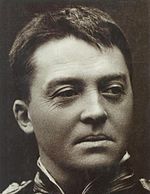John Fisher, 1st Baron Fisher, Date of Birth, Place of Birth, Date of Death
TweetJohn Fisher, 1st Baron Fisher
Royal Navy admiral of the fleet
 Date of Birth: 25-Jan-1841
Date of Birth: 25-Jan-1841
 Place of Birth: Sri Lanka
Place of Birth: Sri Lanka
Date of Death: 10-Jul-1920
Profession: politician
Zodiac Sign: Aquarius 
About John Fisher, 1st Baron Fisher
- John Arbuthnot Fisher, 1st Baron Fisher, (25 January 1841 – 10 July 1920), commonly known as Jacky or Jackie Fisher, was a British admiral known for his efforts at naval reform.
- He had a huge influence on the Royal Navy in a career spanning more than 60 years, starting in a navy of wooden sailing ships armed with muzzle-loading cannon and ending in one of steel-hulled battlecruisers, submarines and the first aircraft carriers.
- The argumentative, energetic, reform-minded Fisher is often considered the second most important figure in British naval history, after Lord Nelson. Fisher is primarily celebrated as an innovator, strategist and developer of the navy rather than a seagoing admiral involved in major battles, although in his career he experienced all these things.
- When appointed First Sea Lord in 1904, he removed 150 ships then on active service which were no longer useful and set about constructing modern replacements, creating a modern fleet prepared to meet Germany during the First World War.Fisher saw the need to improve the range, accuracy and rate of fire of naval gunnery, and was an early proponent of the use of the torpedo, which he believed would supersede big guns for use against ships.
- As Controller, he introduced torpedo boat destroyers as a class of ship intended for defence against attack from torpedo boats or submarines.
- As First Sea Lord, he was responsible for the construction of HMS Dreadnought, the first all-big-gun battleship, but he also believed that submarines would become increasingly important and urged their development.
- He was involved with the introduction of turbine engines to replace reciprocating engines, and the introduction of oil fuelling to replace coal.
- He introduced daily baked bread on board ships, whereas when he entered the service it was customary to eat hard biscuits, frequently infested by biscuit weevils.He first officially retired from the Admiralty in 1910 on his 69th birthday, but became First Sea Lord again in November 1914.
- He resigned seven months later in frustration over Churchill's Gallipoli campaign, and then served as chairman of the Government's Board of Invention and Research until the end of the war.
Read more at Wikipedia

